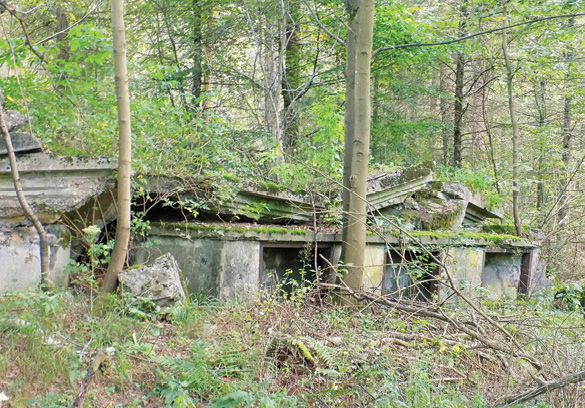I n this series, thos e involved with CLC foreign missions profile one aspect of our overseas endeavors.
Prior to World War II, the series of fortifications known as the Maginot Line was considered by the French to be impregnable. Later, however, they proved to be meaningless as the Germans simply went around them, attacking with tanks through the Ardennes Forest, where they were least expected. There the defense was light and totally inadequate against panzers. Despite all the time, effort, and money spent on the splendid Maginot Line of forts, they stood as a hollow monument to the failings of a static defense.

We Are at War
Against us are arrayed far worse foes. “ For we do not wrestle against flesh and blood, but against principalities , against powers, against the rulers of the darkness of this age, against spiritual hosts of wickedness in the heavenly places.” (Ephesians 6:12) In this war there is no compromise, and the sides are clearly drawn. “He who is not with Me is against Me, and he who does not gather with Me scatters abroad.” (Matthew 12:30)
Are we sometimes guilty of offering a “static defense” in our mission work, instead of a mobile warfare that sweeps courageously forward? There are a variety of risks in such an approach. The terrain is rugged. The territory is unfamiliar. The risks to life and limb are ever present.
The Gates of Hell Shall Not Prevail
It would be a daunting task were it not for the fact that our commander is no worldly-wise Rommel or Guderian. Ours is the “Commander of the army of the Lord .” (Joshua 5:14) He has already won! We are to be mobile and forward moving as our Lord taught. “I will build My church, and the gates of Hades shall not prevail against it.” (Matthew 16:18) It is important to note that He is building His church. We are His instruments. He builds His mobile expanding force in our hearts, rather than in stationary brick and mortar.
We are not really in a fortress with the enemy battering our walls. We are assailing the devil’s strongholds in order to bring out the captives into the glorious light of His Gospel of grace and love. Our weapons are more powerful than any division of panzers. “For though we live in the world, we do not wage war as the world does. The weapons we fight with are not the weapons of the world. On the contrary, they have divine power to demolish strongholds. We demolish arguments and every pretension that sets itself up against the knowledge of God, and we take captive every thought to make it obedient to Christ.” (2 Corinthians 10:3-5 NIV)
Think of that Samaritan town that was breached not by a vast military host bearing siege weapons and battering rams, but by a single woman entering with the Good News in her heart and on her tongue. After the Lord spoke to the woman at Jacob’s well (John 4), she with joy went to tell others. Then even more results were forthcoming as the people came out to see and hear Him. And the multiplication continues.
Whether as a missionary, a board, or a synod, if we fail to take note and go where He points, we run the risk of falling back on a static defense. But when we sweep forward with courage, the impregnable is overcome and the impossible becomes possible. “For with God nothing will be impossible.” (Luke 1:37)
Our prayer— “ Lord, I believe; help my unbelief!”
A ruined fortress of the ill-fated Maginot Line in France
has served as a foreign missionary in Africa, India, and elsewhere. Though officially retired, he continues to be active in the synod’s mission endeavors.

